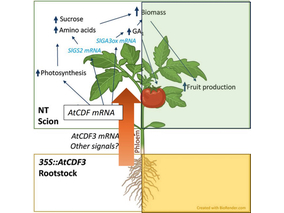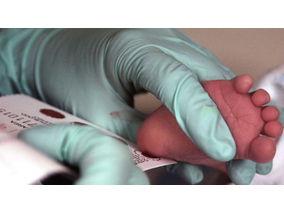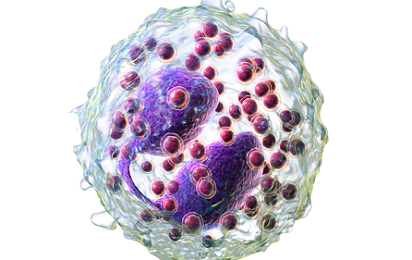A CIC biomaGUNE research team has determined a new application of magnetic resonance for the study of the protein corona through nanoparticle size change. Study of the protein corona, a spontaneous surface coating of nanoparticles, which inevitably forms when nanoparticles come into contact with the proteins naturally found in abundance in blood, is key in the field of nanomaterial design for biomedical applications.
This research has made it possible to study the protein corona in real blood samples and opens up the potential for measuring it directly in a living organism using a magnetic resonance imaging (MRI) scanner.
Mónica Carril, Ikerbasque researcher in CIC biomaGUNE, explains: “Our team has studied the protein corona in blood and in the presence of cells. To do so, we have used fluorine-labelled nanoparticles. The signal from the nucleus of fluorine enables the diffusion coefficient of the nanoparticles to be measured free from interference using magnetic resonance”.
The research, published in the journal Nature Communications, not only allows protein corona to be studied in real blood samples but also opens up the potential for measuring it directly in a living organism using MRI. This is already under investigation in CIC biomaGUNE.

The research team observed changes in head circumf...

AtCDF3 gene induced greater production of sugars a...

Un estudio con datos de los últimos 35 años, ind...

En nuestro post hablamos sobre este interesante tipo de célula del...

El BCN Medicare Hub, el grupo de empresas industriales con ISO13485 de...
Biotechnology portal in Spain
Subscribe to our newsletter and stay up to date with the latest news and deals!
2013 © Biotech-Spain.com - Site Developments SL. All Rights Reserved. Terms of Service | Privacy Policy
Articles
Directory
